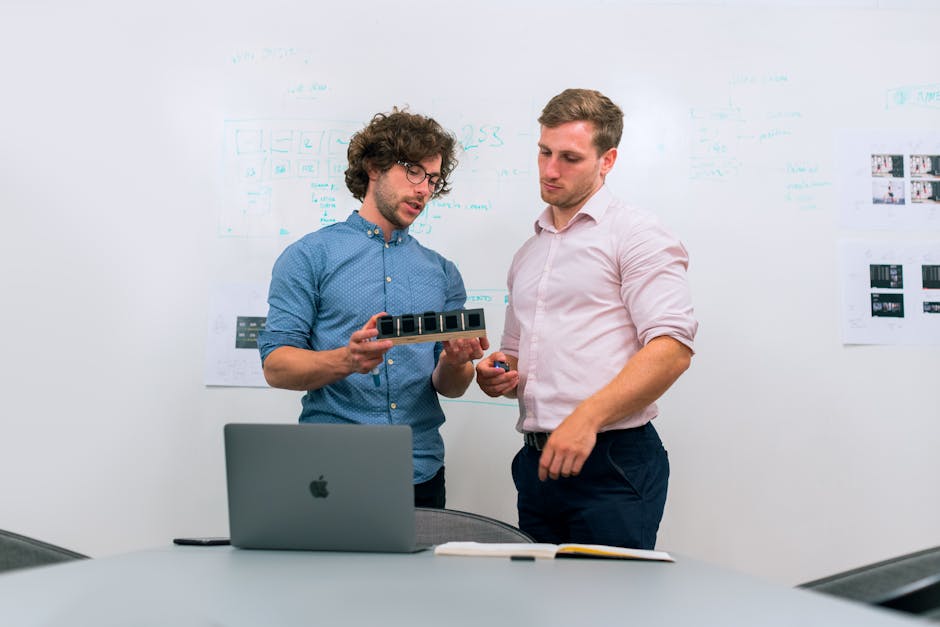Driving Success In Autotech With MVP Development
In the fast-paced world of AutoTech, where advancements in technology and innovation are constantly shifting gears, driving success is no easy feat. It’s like navigating through a complex maze of possibilities, with countless roads to explore and decisions to make. But fear not, because there’s a key that can unlock the path to triumph: MVP development.
Picture this: you’re behind the wheel of a high-performance car, gripping the steering wheel tightly as you navigate sharp turns and accelerate towards victory. Similarly, MVP development acts as your trusted companion on this thrilling journey. It serves as the foundation for building cutting-edge automotive solutions by allowing you to test ideas quickly, adapt swiftly to market demands, and steer clear of potential pitfalls.
By implementing agile product development methodologies tailored specifically for AutoTech industry needs, you’ll be able to validate ideas effectively while minimising risks. Accelerating success becomes second nature when you leverage MVP development strategies that enable swift iterations and continuous improvement.
So buckle up and get ready for an exhilarating ride into the future of AutoTech. With MVP development leading the way, there’s no limit to what you can achieve in this dynamic industry.
Key Takeaways
- MVP development is crucial for success in the AutoTech industry.
- Agile product development methodologies enable swift adaptation and continuous improvement.
- MVP development plays a crucial role in the future of AutoTech, especially with the rise of autonomous vehicles.
- Embracing the future and adopting cutting-edge solutions helps companies stay ahead in the ever-evolving AutoTech industry.
Understanding the AutoTech Industry

You need to understand the AutoTech industry in order to truly grasp its potential and feel inspired by the endless possibilities it holds.
The autotech industry is constantly evolving, driven by advancements in technology and the growing demand for smarter and more efficient vehicles. However, it is not without its challenges.
One of the major challenges faced by the autotech industry is keeping up with emerging trends. As technology continues to advance at a rapid pace, new trends such as electric vehicles, autonomous driving, and connected cars are reshaping the automotive landscape. Staying ahead of these trends requires a deep understanding of the market and the ability to adapt quickly to changing customer preferences.
Another challenge faced by autotech companies is ensuring safety and security in an increasingly connected world. With cars becoming more connected through IoT (Internet of Things) technologies, there is a greater risk of cyber attacks that could compromise both personal data and vehicle control systems. Autotech companies must invest heavily in cybersecurity measures to protect their customers’ information and ensure safe operation of their vehicles.
Despite these challenges, the autotech industry presents immense opportunities for growth and innovation. From improving fuel efficiency to reducing emissions, autotech has the potential to transform transportation as we know it. By leveraging new technologies like artificial intelligence and machine learning, autotech companies can develop innovative solutions that address current challenges while also paving the way for future advancements.
Understanding the autotech industry is crucial for anyone looking to drive success in this rapidly evolving field. By staying informed about emerging trends and addressing key challenges such as safety and security, autotech companies can unlock tremendous opportunities for growth.
This sets the stage for discussing the importance of minimum viable product (MVP) development in driving success within this dynamic industry.
The Importance of Minimum Viable Product (MVP)

Starting with a Minimum Viable Product (MVP) can be crucial for companies in the autotech industry to validate their ideas and make informed decisions. An MVP is a version of a product that includes only its core features, allowing businesses to quickly get it into the hands of users and gather valuable feedback.
By focussing on essential functionalities, autotech companies can save time and resources while gaining early insights into user preferences and needs.
To highlight the importance of an MVP in autotech, consider the following:
-
Reduced development costs: Building a full-fledged product from scratch without any user input can lead to wasted efforts if it fails to meet market demands. With an MVP, companies can allocate their resources more efficiently by developing only what users truly value.
-
Accelerated product iteration: An MVP enables rapid iterations based on real-world usage and feedback. By releasing an initial version quickly, developers can gauge user reactions and fine-tune subsequent iterations accordingly. This iterative process helps drive continuous improvement and ensures that the final product alines with customer expectations.
-
Early feedback integration: Gathering early feedback is vital for autotech companies as it allows them to understand user pain points, identify potential design flaws, and prioritise feature enhancements. Incorporating this feedback during the development stage ensures that subsequent releases address critical issues promptly.
Implementing agile product development methodologies complements the use of an MVP in driving success within the autotech industry. By embracing an iterative approach focussed on frequent releases, companies can adapt swiftly to changing market dynamics while continuously refining their products based on user feedback.
Implementing Agile Product Development

Implementing agile product development methodologies enables autotech companies to adapt swiftly to changing market dynamics and continuously refine their products based on real-world usage and feedback. By adopting an iterative approach, autotech companies can break down their product development process into smaller, manageable increments. This allows for continuous improvement as each iteration builds upon the previous one, incorporating feedback from users and stakeholders.
Agile product development is characterised by its flexibility and collaborative nature. Instead of following a rigid plan from start to finish, teams work in short sprints, typically lasting two to four weeks. At the end of each sprint, there is a review where the team gathers feedback from users and stakeholders. This feedback drives the prioritisation of features and helps guide future iterations.
To better understand how agile product development works in autotech companies, let’s take a look at the following table:
| Iteration | Tasks Completed | Feedback Received | Improvements Made |
|---|---|---|---|
| 1 | Develop basic prototype | Feedback on useability | Improved user interface |
| 2 | Add additional features | Feedback on performance | Optimised system performance |
| 3 | Refine user experience | Feedback on reliability | Enhanced system reliability |
As you can see from this example, each iteration builds upon the previous one, incorporating feedback and making improvements along the way. This iterative approach allows autotech companies to quickly adapt to changing market dynamics and deliver products that meet customer needs.
By implementing agile product development methodologies, autotech companies can validate ideas and minimise risks by continuously refining their products based on real-world usage and feedback. This ensures that they are building products that customers truly want and need while minimising costly mistakes or missteps.
Next section: Validating ideas and minimising risks
Validating Ideas and Minimising Risks

To validate ideas and mitigate risks, autotech companies can continuously refine their products based on real-world usage and feedback through agile product development methodologies. By gathering user feedback and conducting market research, autotech companies can ensure that their products meet the needs of their target audience and address any potential issues or concerns.
Here are four key steps to validating ideas and minimising risks in autotech:
-
Conduct thorough market research: Before developing a product, it’s crucial for autotech companies to understand the market landscape and identify existing solutions or competitors. This helps them assess the viability of their idea and make informed decisions about its potential success.
-
Prototype and test early: Autotech companies should create prototypes of their products at an early stage to gather feedback from users. This allows them to identify any useability issues or flaws in the design before investing significant time and resources into full-scale production.
-
Iterate based on user feedback: Through agile methodologies like Scrum or Kanban, autotech companies can continuously iterate on their products based on real-time user feedback. This iterative approach ensures that the final product meets user expectations while minimising risks associated with building something without sufficient validation.
-
Validate assumptions with data: It’s important for autotech companies to back up their ideas with data-driven insights whenever possible. By collecting relevant metrics, such as user engagement or conversion rates, they can validate assumptions and make data-informed decisions throughout the development process.
By validating ideas and minimising risks through continuous refinement based on real-world usage and feedback, autotech companies can increase the chances of success for their products in a highly competitive market. In the next section, we’ll explore how accelerating success with minimum viable products (MVPs) further enhances this strategy.
Accelerating Success with MVP

When it comes to accelerating your journey towards success in the autotech industry, hitting the ground running with a minimum viable product (MVP) is like taking a bull by the horns. An MVP allows you to quickly test your ideas and gather valuable customer feedback, enabling you to make informed decisions and minimise risks.
By developing an MVP, you can validate your assumptions and ensure that your product meets market demands. One of the key benefits of an MVP is that it enables you to obtain real-world data from actual customers. This feedback is invaluable as it helps you understand how well your product addresses their pain points and whether there are any areas for improvement.
Incorporating this customer feedback into future iterations of your product ensures that you are constantly refining and enhancing its features based on real user needs. Market research also plays a critical role in accelerating success with MVP development. Understanding the competitive landscape, identifying target markets, and analysing consumer trends can help guide your decision-making process.
By conducting thorough market research, you gain insights into what competitors are offering and where there may be gaps in the market that your MVP can fill. By leveraging customer feedback and conducting comprehensive market research, you can fine-tune your autotech product through each iteration of its development cycle.
This iterative approach not only minimises risks but also maximises the chances of achieving success in the autotech industry. As we look ahead to the future of autotech and MVP development, it’s clear that embracing this agile methodology will continue to drive innovation and growth.
By constantly iterating on our products based on customer feedback and market research insights, we can stay ahead of the curve and deliver cutting-edge solutions that meet evolving industry demands without missing a beat.
The Future of AutoTech and MVP Development

As you look ahead, embrace the future of autotech and MVP development to stay ahead of the curve and deliver cutting-edge solutions that meet evolving industry demands without missing a beat. The future of AutoTech holds immense potential, particularly with the rise of autonomous vehicles. These self-driving cars are set to revolutionise transportation as we know it, and MVP development will play a crucial role in driving their success.
MVP development, or Minimum Viable Product, is an approach that focuses on creating a basic version of a product with just enough features to satisfy early adopters. This allows companies to test their ideas quickly and gather valuable feedback from users. In the context of AutoTech, MVP development can be used to accelerate innovation and bring disruptive technologies to market faster.
To better understand the impact of MVP development in autotech, let’s take a look at the following table:
| Autonomous Vehicles | Disruptive Innovation |
|---|---|
| Self-driving cars are equipped with advanced sensors and artificial intelligence systems that enable them to navigate roads without human intervention. | Disruptive innovation refers to technologies or products that fundamentally change existing industries or create entirely new ones. Autonomous vehicles have the potential to disrupt traditional transportation methods by offering increased safety, efficiency, and convenience. |
By embracing MVP development in AutoTech, companies can leverage this disruptive innovation by rapidly iterating on their product ideas. This iterative process allows for quick adaptation based on user feedback and market demands. It also enables companies to identify potential challenges early on and address them proactively.
The future of AutoTech lies in autonomous vehicles and disruptive innovation. By adopting an MVP development approach, companies can drive success by staying ahead in this ever-evolving industry. Embrace this future with confidence and watch as your cutting-edge solutions shape the way we travel tomorrow.
Frequently Asked Questions
What are the key challenges faced by the AutoTech industry in adopting MVP development?
The autotech industry faces challenges in adopting MVP development, such as managing technological complexities, integrating with existing systems, and ensuring scalability. Overcoming these obstacles is crucial for successful implementation and driving innovation in the field.
How can Agile product development methodologies be applied specifically to the AutoTech industry?
To implement agile methodologies in the autotech industry, embrace the fast-paced nature of Autotech innovation. Break down complex projects into manageable iterations, prioritise customer feedback, and foster collaboration between cross-functional teams to drive efficient and effective product development.
What are some effective strategies for validating ideas in the AutoTech industry?
To validate ideas in the Autotech industry, effective strategies include conducting market research to identify customer needs and preferences, performing feasibility studies to assess technical and financial viability, and leveraging prototyping and testing for iterative improvements.
How can MVP development help in minimising risks associated with AutoTech projects?
Minimising risks in autotech projects is crucial. How can MVP development help? By implementing a systematic approach, focussing on success factors, and testing early prototypes, you can identify and address potential issues before they become costly problems.
What potential advancements can be expected in AutoTech and MVP development in the future?
In the future, autonomous vehicles will continue to advance with emerging technologies. MVP development will play a crucial role in minimising risks and ensuring success by allowing for iterative testing and feedback.
Conclusion
Congratulations on completing the article! By delving into the world of AutoTech and understanding its potential, you’ve gained valuable insight into how MVP development can drive success in this industry.
With the adoption of Agile product development and the validation of ideas, risks are minimised, allowing for accelerated growth.
As you continue to explore this fascinating field, consider this striking statistic: In 2020 alone, global investment in AutoTech reached a staggering $46 billion. This immense financial commitment highlights the immense opportunity and potential for innovation in AutoTech, promising an exciting future ahead.
Contact us to discuss our services now!
